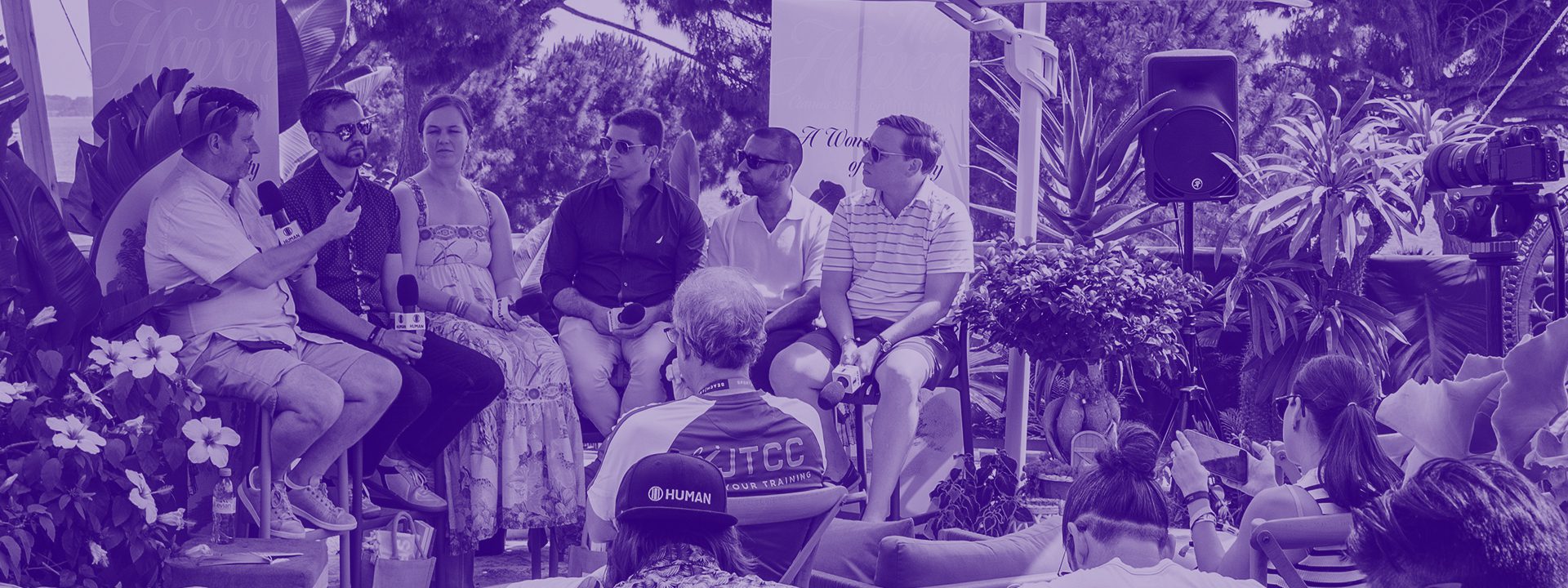What We Learned at Cannes
Read time: 4 minutesRosemary Cipriano

With the sunburn finally subsiding, it’s time to take a look back at Cannes. The team here at HUMAN spent a week in the South of France discussing the biggest challenges and opportunities facing the advertising industry. We hosted leaders in The Haven, our wonderland of creativity, for conversations around privacy, sustainability, equality, and of course, AI. Here’s what our team took away.
1. AI will never successfully take over creative thinking
In our panel The Good Bots, The Bad Bots, and the Ugly AI Conversation, we had a lively talk about the risks and rewards of using AI. A theme that came out was how the next 10 years will be shaped by AI. HUMAN Co-Founder and CEO Tamer Hassan discussed how automated agents – like AI and similarly bots – will replace high-skilled jobs that are prone to human error. With some of these skills automated with AI, that opens up more opportunity and time for creative thinking. However, human intervention will always be needed for AI. And be warned of AI poisoning – putting bad data into AI means you’re receiving bad results.
2. Bots are still flagged as brand safe and viewable.
This was a theme we noticed throughout our panels – metrics don’t matter and aren’t accurate when bots are still getting by as brand safe and are measured as viewable. Specifically for our panel, The Advertiser’s Rainbow Road: Measurement in the Metaverse, we dove into measurement in 3D environments. The panelists talked about the myths around gaming right now: it’s a hard-to-measure environment, it’s rife with fraud, and it only caters to a specific audience. That is not the case, especially today. While most believe you can’t measure in-game ads, they’re forgetting there’s no environment with better attention metrics than gaming. Three billion humans play video games today – far more than just kids – and advertisers are missing out on their undivided attention. Also, companies like our partners at Anzu are ensuring that security is baked into in-game advertising from the beginning instead of it being too late.
3. Today’s advertising ethos – “find the right person at the right time with the right creative” – isn’t privacy safe
While the French Riviera doesn’t seem like the most appropriate place for deep conversations about privacy, our panelists proved that notion wrong with a debate: Next-Gen Privacy and Data Protection: Learning from the Sins of the Past. Throughout the week, they heard a lot of folks talking about the importance of finding the right person at the right time with the right creative. However, those conversations left out how consumers feel about it: it can be creepy! Being too targeted can make ad viewers feel like they’re being stalked. If you told your customer what you were doing with their data, would they be ok with it? The panelists agreed that if the answer is no, it’s time to try more privacy-safe tactics.
4. In order to be a sustainable ecosystem, we need to get rid of vanity metrics.
Sustainability always tends to take center stage at Cannes, and this year we faced it head on with the conversation Creating a Safer Internet and World: Sustainability & SPO. Unfortunately, vanity metrics tend to drive the buy side. Viewability and CPMs can make things like Made For Advertising (MFA) sites attractive to advertisers – they can quickly meet their goals with minimal spend and effort. But the carbon footprint of doing this is vast and the quality of the audience is bad. MFAs are notorious breeding grounds for bot traffic. By changing how we look at metrics across the programmatic ecosystem, we can have an outsized impact on carbon emissions.
5. The “motherhood penalty” accounts for the majority of the gender pay gap.
We were so happy to host such a dynamic group of women to discuss gender inequity in our industry. There we learned about the “motherhood penalty” from Ellie Windle at Persist. This penalty says that after a heterosexual couple has a baby, a man’s salary tends to increase by 10-30% while a woman’s salary tends to decrease by 10-30% – accounting for the majority of the gender pay gap. There’s an unconscious bias that happens when a woman has a baby, where their employer tends to think they can’t be as committed as they once were. Recognizing and challenging these biases is the only path forward to true gender equity.
Thank you to all of our panelists for bringing their expertise to The Haven!
